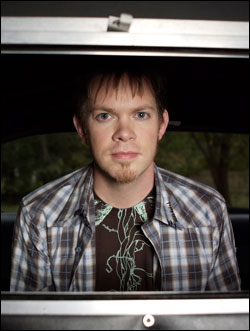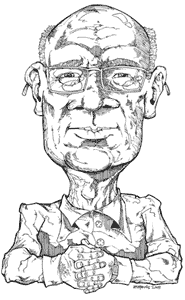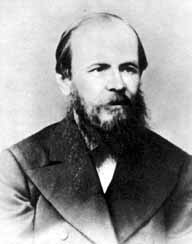Filed under: Devotional
Little Faith by Jason Gray Jason Gray: “There are still those who will maintain that faith is less a gift than it is a discipline, who will tell the rest of us to believe harder to get the job done.” Suddenly there was an angel at his side and light flooding the room. The angel shook Peter and got him up: “Hurry!” The handcuffs fell off his wrists. The angel said, “Get dressed. Put on your shoes.” Peter did it. Then, “Grab your coat and let’s get out of here.” Peter followed him, but didn’t believe it was really an angel—he thought he was dreaming. — Acts 12:7-9 I remember in the third grade after hearing a faith preacher on T.V. I boldly threw my glasses in the garbage and went to bed believing this act of faith would certainly move God to give me 20/20 vision. Imagine my disappointment when I had to go digging through the garbage the next morning to retrieve my glasses for school. The fact that I could barely see as I scoured through the rubbish only added insult to injury. It was my first attempt at faith healing, but not my last. As a guy with a speech handicap (I’m a stutterer), I was told countless times that if I believed hard enough, if I had enough faith, I would be healed. And so from time to time throughout my life I determined that I would do my best to muster up the requisite amount of faith to get the job done and finally be delivered of my ridiculous tongue. But it never happened, which could be on account of the sin in my life, which is the other thing I was told countless times… I was under a lot of pressure to say the least. I mean, the ball was clearly in my court and I believed my healing was up to me. The fact that it never came was disappointing on multiple levels – I was letting both God and myself down by my lack of faith. The verse where Jesus says to Peter, “O ye of little faith” stung me every time I heard it. As I got older, I was blessed to discover God’s grace and was disabused of a lot what I see now as destructive theology that threatened to thwart a loving and transformational relationship with Jesus. Still, those old ideas die hard, and there are plenty of scriptures that could be quoted in defense of having more faith. But there are other stories, too, that reveal a loving and powerful God who acts according to his own will rather than waiting for us to get our act together. One of my favorites is the story of Peter (of little faith, remember) sitting in a jail cell in Acts 12. With Peter in custody, Herod plans to lynch him in the morning. The church, still reeling from the execution of James, organizes a prayer meeting. And then God saves the day – the angel comes and leads Peter out past the guards and he goes on to crash the prayer meeting held in his honor. It is, without a doubt, a rousing and amazing story of God’s faithfulness, but what is most amazing to me is that no one was more surprised than Peter and those who prayed for him. The text says that Peter assumed he was dreaming the whole time and it wasn’t until he was well past the guards that the reality of his situation occurred to him. In other words, this is not the story of an expectant believer waiting to be delivered. And those who were praying for him were not much better – when Peter shows up at their door, they don’t believe it’s him! In fact, they assume it’s his ghost. In other words, they were unwilling to believe their own prayers had been answered. So maybe faith isn’t always a pre-requisite for God to act. It may be a little uncharitable to speak this way about Peter and his friends, however. The fact that they were gathered there on that cold night to pray so soon after the terrible blow of James’s execution is evidence of at least a modest faith – a quiet faith without bravado; a faith that isn’t dependent on favorable outcomes; a faith that trusts to the loving kindness of a merciful God even in the face of the worst this world can deal us including death, disease, injustice, and even speech handicaps. There are still those who will maintain that faith is less a gift than it is a discipline, who will tell the rest of us to believe harder to get the job done. But take heart. The good news is that if there is indeed faith that we are asked to muster up, it need be no bigger than a mustard seed. Jesus said this, and I have to believe him. “Lord, I believe. Help my unbelief.”
Filed under: Devotional
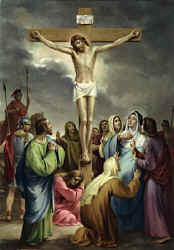 St. Francis of Assisi”Look down upon me, good and gently Jesus, while before Thy face I humbly kneel; and with burning soul pray and beseech Thee to fix deep in my heart lively sentiments of faith, hope and charity, true contrition for my sins and a firm purpose of amendment. While with great love and tender pity I contemplate Thy five wounds, pondering over them within me, calling to mind the words which David, Thy prophet, said of Thee, my Jesus: “They have pierced My hands and My feet; they have numbered all My bones.”
St. Francis of Assisi”Look down upon me, good and gently Jesus, while before Thy face I humbly kneel; and with burning soul pray and beseech Thee to fix deep in my heart lively sentiments of faith, hope and charity, true contrition for my sins and a firm purpose of amendment. While with great love and tender pity I contemplate Thy five wounds, pondering over them within me, calling to mind the words which David, Thy prophet, said of Thee, my Jesus: “They have pierced My hands and My feet; they have numbered all My bones.”

A true story from Brennan Manning in the book, “Abba’s Child” Once a woman asked me to come and pray with her father, who was dying of cancer. When I arrived, I found the man lying in bed with his head propped up on two pillows and an empty chair beside his bed. I assumed the old fellow had been informed of my visit. “I guess you were expecting me,” I said. “No, who are you?” “I’m the new associate at your parish,” I replied. “When I saw the empty chair, I figured you knew I was going to show up.” “Oh yeah, the chair,” said the bed-ridden man. “Would you mind closing the door?” Puzzled, I shut the door. “I’ve never told anyone this, not even my daughter,” said the man, “but all my life I have never known how to pray. At the Sunday Mass I used to hear the pastor talk about prayer, but it always went right over my head. “I abandoned any attempt at prayer,” he continued, “until one day about four years ago my best friend said to me, ‘Joe, prayer is just a simple matter of having a conversation with Jesus. Here’s what I suggest. Sit down on a chair, place an empty chair in front of you, and in faith see Jesus on the chair. It’s not spooky because He promised, “I’ll be with you all days.” Then just speak to Him and listen in the same way you’re doing with me right now.’ “So, Padre, I tried it, and I like it so much that I do it a couple of hours every day. I’m careful though. If my daughter saw me talking to an empty chair, she’d send me off to the funny farm.” I was deeply moved by the story and encouraged the old guy to continue on the journey. Then I prayed with him, anointed him with oil, and returned to the rectory. Two nights later the daughter called to tell me that her daddy had died that afternoon. “Did he seem to die in peace?” I asked. “Yes. But there was something strange. In fact, beyond strange—kinda weird. Apparently just before Daddy died, he leaned over and rested his head on a chair beside his bed.”
Filed under: My Devotionals
Hey everyone-
and my weakness in Your abandonment,Take hold of me with Your love,that same foolish love that knew no limits,and let me offer myself to the Father with You so that I may rise with You to eternal life.”
Catholic Prayers
A Lenten Prayer called the PassionDear Lord Jesus, by Your Passion and ResurrectionYou brought life to the world.But the glory of the Resurrectioncame only after the sufferings of the Passion.You laid down Your life willinglyand gave up everything for us.Your body was broken and fastened to a Cross,Your clothing became the prize of soldiers,your blood ebbed slowly but surely away,and Your Mother was entrusted to the beloved disciple.Stretched out on the Cross,deprived of all earthly possessions and human aid, You cried out to Your Father that the end had come.You had accomplished the work given You, and You committed into His hands, as a perfect gift, the little life that remained to You.Lord, teach me to accept all afflictionsafter the example You have given.Let me place my death in Yours and my weakness in Your abandonment,Take hold of me with Your love,that same foolish love that knew no limits,and let me offer myself to the Father with You so that I may rise with You to eternal life. |
Filed under: Quotes
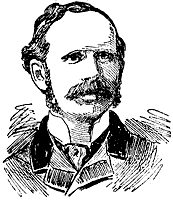 “God, the Eternal God, is Love. Covet therefore that everlasting gift, that one thing which it is certain is going to stand, that one coinage which will be current in the universe when all other coinages of all the nations of the world shall be useless and unhonored.” Henry Drummond
“God, the Eternal God, is Love. Covet therefore that everlasting gift, that one thing which it is certain is going to stand, that one coinage which will be current in the universe when all other coinages of all the nations of the world shall be useless and unhonored.” Henry Drummond
Filed under: Quotes
“Just like their are two men crucified on either side of Christ, their are two thieves of the gospel. One is legalism and the other is leniency.” Pastor Tim Keller Redeemer Press (PCA)-New York
Filed under: Articles
The meaning of Ash Wednesday
Friday, March 9, 2001
By ANTHONY B. ROBINSONSEATTLE POST-INTELLIGENCER COLUMNIST
The essential truth, and gift, of Ash Wednesday is its call to come to terms with ourselves before God. Ash Wednesday says what so much of modern culture denies, namely that we human beings are forever deceiving and justifying ourselves.
For those familiar with Alcoholics Anonymous and other Twelve Step programs, Ash Wednesday is a like a giant, pull-out-all-the stops Step Four. We “made a searching and fearless moral inventory of ourselves.”
Ash Wednesday is not only a day for searching self-scrutiny on the part of individuals, but for us as a community of people. What we have most in common as human beings is our sin, our failure to be who we have been made to be and called to be. What we have most in common is our need for mercy.
Of course, a lot of people don’t agree with this. Many think that our problem is insufficient self-esteem. We need to think more highly of ourselves, love ourselves more. Personally, I think we have gone about as far down that road as we can go. I’m in favor of thinking less of ourselves. Oh sure, that too can be overdone.
On Ash Wednesday, a pretty convincing call to attention was sounded at around 11 a.m. in the Pacific Northwest. When we clambered out from under our desks and door frames, one clear lesson was that we were all in this one together. The earthquake didn’t single out one racial, ethnic, gender, age, economic, ideological or occupational group. No, it was an equal opportunity event. A reminder that we’re all in this together, and that no one gets to point the finger or to distance themselves and say, “That’s about her, not me; about them, not us.”
Over the years I have noticed a university professor who always makes it to Ash Wednesday services every year, even though her Sunday attendance is sporadic. Finally, I asked her, “I see you really make a point of getting to Ash Wednesday. What’s the deal?”
“It’s the one day of the year,” she said, “when we really get it right, when we tell the truth, a truth that’s not told at the university. We’re a mess. We need help. If it’s all up to us, we’re doomed.”
Of course, confession, apology and remorse are possible and make sense only when we believe it is not all up to us.
Filed under: Quotes
Filed under: Quotes
Filed under: Quotes
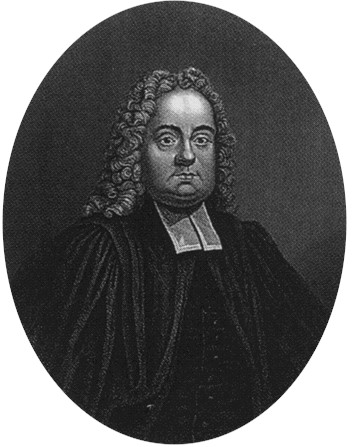 Many years ago, Matthew Henry, a well-known Bible scholar, was once robbed of his wallet. Knowing that it was his duty to give thanks in everything, he meditated on this incident and recorded in his diary the following:Let me be thankful, first, because he never robbed me before; second, because although he took my purse, he did not take my life; third, because although he took all I possessed, it was not much; and fourth, because it was I who was robbed, not I who robbed.Matthew Henry (1662-1714)English Non-conformist Bible commentator
Many years ago, Matthew Henry, a well-known Bible scholar, was once robbed of his wallet. Knowing that it was his duty to give thanks in everything, he meditated on this incident and recorded in his diary the following:Let me be thankful, first, because he never robbed me before; second, because although he took my purse, he did not take my life; third, because although he took all I possessed, it was not much; and fourth, because it was I who was robbed, not I who robbed.Matthew Henry (1662-1714)English Non-conformist Bible commentator
